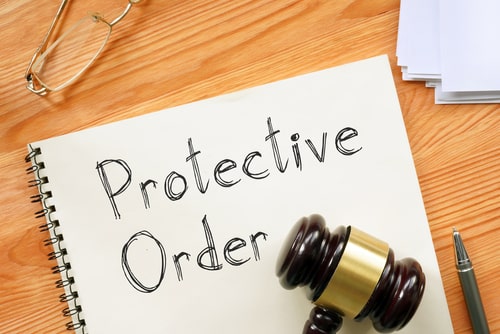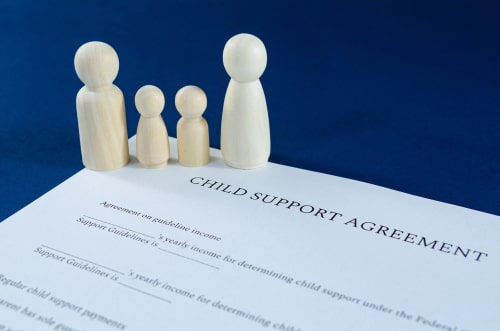Recent Blog Posts
How Can Divorce Affect My Child’s College Education?
 When any couple goes through a divorce, there are so many issues they need to figure out. When the couple also shares children, these issues are confounded. It is common to think about child-related issues in a divorce to revolve around matters like joint custody, where the child will sleep and when, who gets them for each holiday, who decides whether they can take karate, gymnastics or swimming, who they spend their summer vacation with, which parent gets to make medical-related decisions, and a ton of other questions that happen to be more relevant for discussions about young children.
When any couple goes through a divorce, there are so many issues they need to figure out. When the couple also shares children, these issues are confounded. It is common to think about child-related issues in a divorce to revolve around matters like joint custody, where the child will sleep and when, who gets them for each holiday, who decides whether they can take karate, gymnastics or swimming, who they spend their summer vacation with, which parent gets to make medical-related decisions, and a ton of other questions that happen to be more relevant for discussions about young children.
The issue is that couples can get divorced at any stage in their life, and the timing of their divorce could impact issues that you might not have even considered. For example, if you are considering divorce and you have children who will soon be graduating high school, it could be helpful for you to speak with a knowledgeable DuPage County, IL, divorce lawyer. They can explain everything you need to think about to help you reach an agreement that will benefit your child and protect your rights.
What Do I Do if an Order of Protection Is Issued against Me?
 The State of Illinois takes accusations of domestic violence very seriously. Anyone who issues a complaint can be granted an Order of Protection, or a restraining order, which will have legal authority to demand that the alleged abuser stays away from the alleged victim. If danger seems imminent, an almost automatic process can grant an Emergency Order of Protection.
The State of Illinois takes accusations of domestic violence very seriously. Anyone who issues a complaint can be granted an Order of Protection, or a restraining order, which will have legal authority to demand that the alleged abuser stays away from the alleged victim. If danger seems imminent, an almost automatic process can grant an Emergency Order of Protection.
While it is wonderful that these accusations are taken so seriously and can be dealt with so quickly, false accusations are sometimes made and the accused party can suffer unnecessarily. If you believe you have been wrongfully accused of domestic violence and you want to see your children, an experienced DuPage County, IL divorce lawyer can assist you by compassionately ensuring that your rights are protected.
How Should I Respond to an Emergency Order of Protection?
As soon as a domestic abuse claim is made, a court procedure is initiated to decide whether there are reasonable grounds for an Order of Protection. In some cases, the court will investigate the claims exhaustively but in other cases, testimony from an accuser is sufficient for an Emergency Order of Protection (EOP). When this is granted, the restraining order takes effect immediately. At that point, the accused spouse will receive a notice that includes important information like:
What Happens with Credit Card Debt in an Illinois Divorce?
 Credit card debt is a widespread issue across America and poses a particular challenge during divorce. If either spouse has student loans, a mortgage, personal loans, or credit card debt, what happens to it will be decided as part of the debt division to be settled in divorce proceedings. If you are considering divorce and are concerned about your spouse’s credit card debt, a knowledgeable divorce lawyer can offer insight into the process and help you protect your rights.
Credit card debt is a widespread issue across America and poses a particular challenge during divorce. If either spouse has student loans, a mortgage, personal loans, or credit card debt, what happens to it will be decided as part of the debt division to be settled in divorce proceedings. If you are considering divorce and are concerned about your spouse’s credit card debt, a knowledgeable divorce lawyer can offer insight into the process and help you protect your rights.
How Is Debt Distributed in Illinois?
Illinois is considered an “equitable distribution state” for the division of both assets and debts. This means that decisions about how assets and debts will be distributed in divorce will be guided by the goal of ensuring that neither spouse is unfairly financially disadvantaged. However, several other issues will be taken into consideration, including:
Is There Any Hope for a Stay-At-Home Mother Getting Divorced?
 Many parents struggle to maintain their previous work schedule once they have children. It can be difficult just handling the basics of dropping them off at school on time and bringing them after school when you are expected to be at work around the time school starts and your workday lasts longer than the school day. A long commute can make it nearly impossible. When you consider that many children also have extra-curricular activities, medical appointments, or special needs, the logistics alone can be too much to handle for a working parent. This leads many families to decide that one parent should not work and instead be a stay-at-home parent. If you are a non-working parent and are concerned about financial issues after divorce, a DuPage County, IL divorce lawyer can work together with you on a plan to protect your rights.
Many parents struggle to maintain their previous work schedule once they have children. It can be difficult just handling the basics of dropping them off at school on time and bringing them after school when you are expected to be at work around the time school starts and your workday lasts longer than the school day. A long commute can make it nearly impossible. When you consider that many children also have extra-curricular activities, medical appointments, or special needs, the logistics alone can be too much to handle for a working parent. This leads many families to decide that one parent should not work and instead be a stay-at-home parent. If you are a non-working parent and are concerned about financial issues after divorce, a DuPage County, IL divorce lawyer can work together with you on a plan to protect your rights.
Will My Wife Get All Parental Rights in Our Illinois Divorce?
 There is a common assumption that if a couple has children, the mother will automatically get most of the parental rights and responsibilities in a divorce: the mother will get full custody and the father will only be able to visit with the children; the mother will have all decision-making rights for the children, regarding their schooling or healthcare or anything else; the father will pay child support and the mother will be the main parent in the child’s life. These assumptions are no longer accurate.
There is a common assumption that if a couple has children, the mother will automatically get most of the parental rights and responsibilities in a divorce: the mother will get full custody and the father will only be able to visit with the children; the mother will have all decision-making rights for the children, regarding their schooling or healthcare or anything else; the father will pay child support and the mother will be the main parent in the child’s life. These assumptions are no longer accurate.
Every state has its own laws for this section of the law, and even within each state, every divorce is unique. There is no hard rule about “all” divorces being decided in any certain way. That means there is no reason to assume your spouse will get all the parental responsibilities in a divorce. If you are a father and are considering divorce, an experienced DuPage County, IL, divorce lawyer will be able to answer any questions and explain what you can expect with knowledge and sensitivity.
What Should I Know About Working with a Guardian Ad Litem
 While it is true that no two divorces are the same, there are still some issues that commonly come up. Whether the two spouses are splitting up amicably or are unable to even make eye contact, they will still generally need to figure out asset division, spousal support, and property division. And regardless of how easily a couple can reach agreements about all those things in a divorce, child custody issues are commonly difficult to work out.
While it is true that no two divorces are the same, there are still some issues that commonly come up. Whether the two spouses are splitting up amicably or are unable to even make eye contact, they will still generally need to figure out asset division, spousal support, and property division. And regardless of how easily a couple can reach agreements about all those things in a divorce, child custody issues are commonly difficult to work out.
A couple can be ending their marriage on great terms and still find it nearly impossible to formulate a plan for how they will raise their children in this new dynamic. Also, parents can sometimes be so wrapped up in worry about the divorce settlement they might not always feel able to keep their children’s best interests at the center of their minds.
In such cases when parents cannot agree on how their parental responsibilities should be divided in divorce, a guardian ad litem, or GAL, can be appointed by the court. This is a legal representative specifically tasked with advocating for the child’s interests. If you believe an acrimonious divorce may be in your future, it might be good for you to understand what exactly a GAL does. An experienced DuPage County, IL child custody attorney can answer your questions and help prepare you for the next steps in your divorce.
Can My Ex Stop Me from Relocating with Our Kids?
 When parents go through a divorce, they need to reach agreements on several different issues that can affect their family. Even if the divorce is not contentious and the two sides can come to an amicable settlement, the parenting plan that they formulate will naturally be based on their circumstances at the time of the divorce. As often happens in life, sometimes unexpected changes can happen to a divorced parent, and these can make it challenging to adhere to the original parenting plan. If changes in your life have you considering changes to your parenting plan, an experienced DuPage County, IL divorce lawyer can explain what rights you have under Illinois law.
When parents go through a divorce, they need to reach agreements on several different issues that can affect their family. Even if the divorce is not contentious and the two sides can come to an amicable settlement, the parenting plan that they formulate will naturally be based on their circumstances at the time of the divorce. As often happens in life, sometimes unexpected changes can happen to a divorced parent, and these can make it challenging to adhere to the original parenting plan. If changes in your life have you considering changes to your parenting plan, an experienced DuPage County, IL divorce lawyer can explain what rights you have under Illinois law.
What Is the Law in Illinois about Parental Relocation?
Typical changes that people go through in life can complicate matters for divorced parents. For example, if your Illinois divorce settlement includes the fact that you will be paying child support, but then years later, you lose your job, you would likely find it difficult to continue making the payments you originally agreed to. If the parenting plan that you agreed to includes certain times when your children sleep in your respective homes and then your ex starts to seriously date someone who sleeps over, you may no longer feel comfortable with your children sleeping there, too. Another life change that can complicate matters for divorced parents is relocation.
Child Support and Unemployment
 When a couple with children goes through a divorce, there are many issues they need to work out in their divorce settlement. Where will each spouse live? Where will the children live? Who will decide where the children go to school? Who will pay child support, and how much will those payments be?
When a couple with children goes through a divorce, there are many issues they need to work out in their divorce settlement. Where will each spouse live? Where will the children live? Who will decide where the children go to school? Who will pay child support, and how much will those payments be?
The arrangements agreed upon during a divorce settlement are naturally based on the circumstances at the time of the divorce. But if conditions change, it could have a huge impact on a parent’s ability to fulfill their end of the deal. If you are a parent who pays child support, and new circumstances are making it difficult for you to uphold those payments, a DuPage County, IL divorce lawyer can walk you through the process of child support modifications.
Can I Modify My Child Support Obligations in Illinois?
When you were finalizing your divorce settlement, it would have been natural for your child support agreement to be drawn up based on the income you were earning. But sometimes circumstances change. What happens if you get laid off, for example? Can the courts still require you to keep making the same payments even if you are no longer earning the income you once were?
How Is Alimony Calculated in Illinois?
 Alimony, otherwise known as spousal maintenance, can have a big impact on both the one paying it and the one receiving it. It can greatly affect their finances and is a major consideration in their financial planning. Without it, many more unhappy couples would likely remain married. Why? If one spouse has filled the “homemaker” role while the other has developed their career, the nonworking spouse would otherwise have no way to finance their life if they divorced. The spouse who spent all those years working and earning would have been unable to do so if the other spouse had not stepped up at home, giving them the freedom and ability to go off to work. Recognizing this, the courts have formulated methods to calculate spousal maintenance payments. If you are considering divorce but have questions about alimony, a DuPage County, IL divorce lawyer can help clear up some of the confusion.
Alimony, otherwise known as spousal maintenance, can have a big impact on both the one paying it and the one receiving it. It can greatly affect their finances and is a major consideration in their financial planning. Without it, many more unhappy couples would likely remain married. Why? If one spouse has filled the “homemaker” role while the other has developed their career, the nonworking spouse would otherwise have no way to finance their life if they divorced. The spouse who spent all those years working and earning would have been unable to do so if the other spouse had not stepped up at home, giving them the freedom and ability to go off to work. Recognizing this, the courts have formulated methods to calculate spousal maintenance payments. If you are considering divorce but have questions about alimony, a DuPage County, IL divorce lawyer can help clear up some of the confusion.
My Spouse Has a Lot of Debt. Will I Pay the Price in a Divorce?
 Divorce can be a complicated process for any couple to go through. If you have children, you will need to decide which parent has which rights and responsibilities. If you own a home, you will need to decide what will happen with that property in the divorce settlement. If you have any assets, those will need to be divided in some way. And if either spouse has incurred debt, that is another difficult matter that requires resolution. If you are considering divorce but are concerned about how debt division might affect you, a DuPage County, IL divorce attorney will be able to shed light on this sometimes confusing topic.
Divorce can be a complicated process for any couple to go through. If you have children, you will need to decide which parent has which rights and responsibilities. If you own a home, you will need to decide what will happen with that property in the divorce settlement. If you have any assets, those will need to be divided in some way. And if either spouse has incurred debt, that is another difficult matter that requires resolution. If you are considering divorce but are concerned about how debt division might affect you, a DuPage County, IL divorce attorney will be able to shed light on this sometimes confusing topic.
What Is an Equitable Distribution State?
The majority of states, including the State of Illinois, are considered “equitable distribution states.” This means that instead of dividing a couple’s assets equally in a divorce settlement, a different calculation is used to determine the fairest way to distribute everything. Rather than taking everything the couple has acquired and dividing it all down the middle, the courts will take into account all their shared assets, debts, the duration of the marriage, each spouse’s unique needs, and other information.







 630-364-4046
630-364-4046





